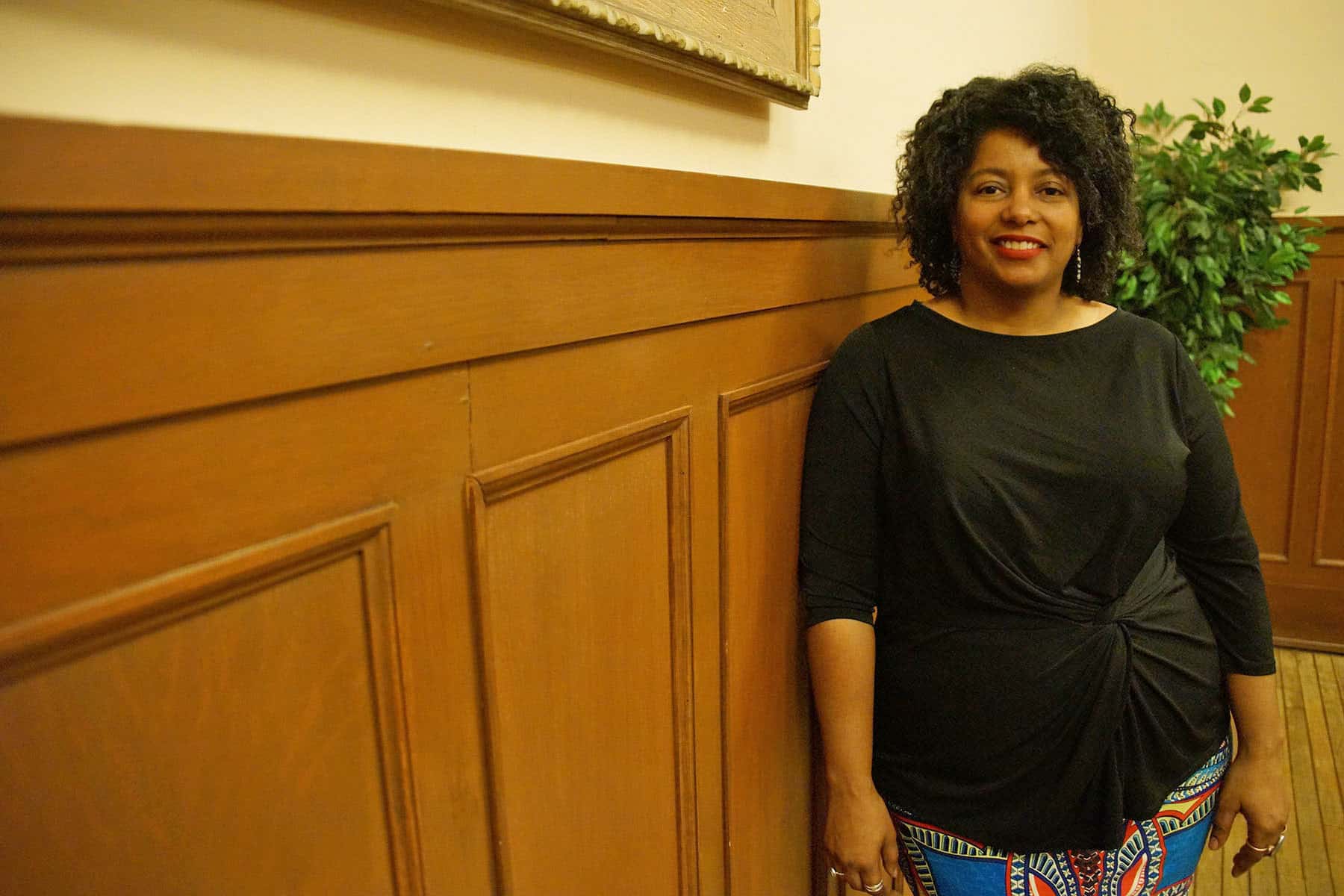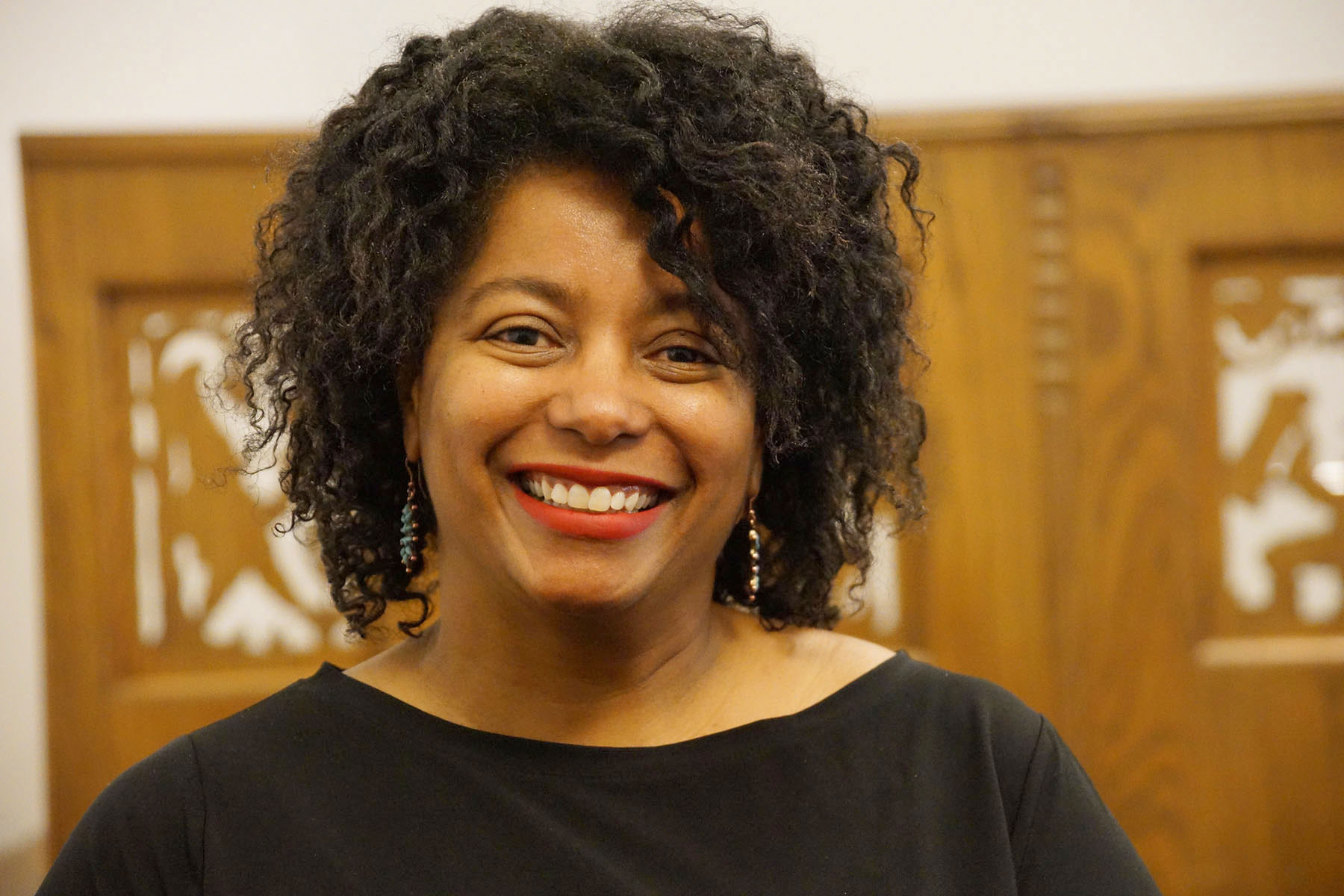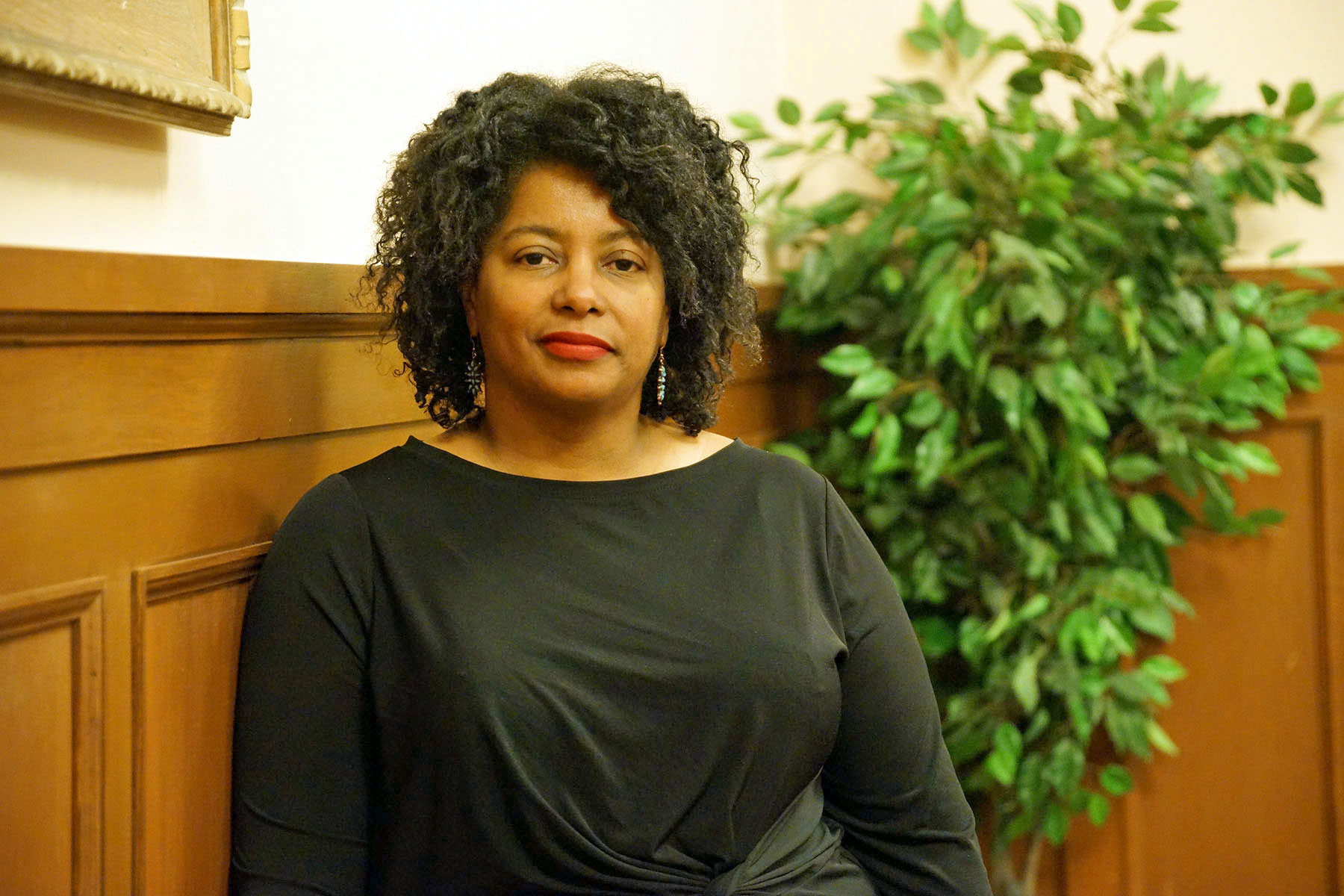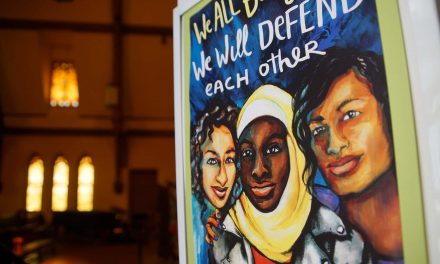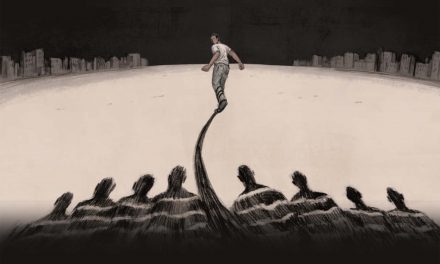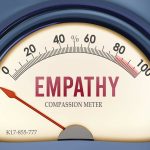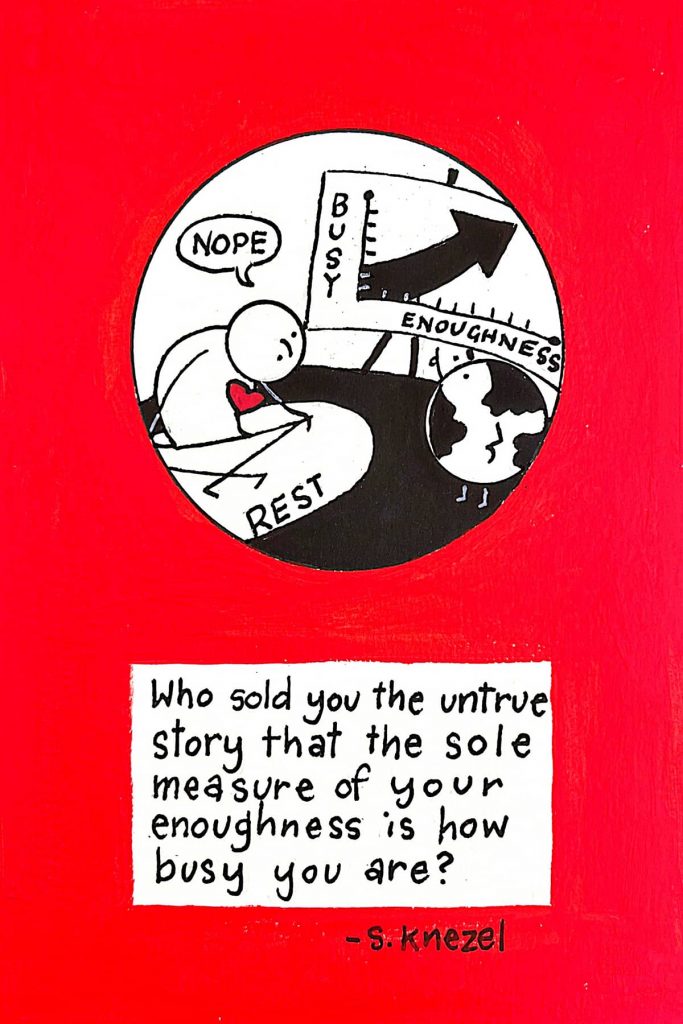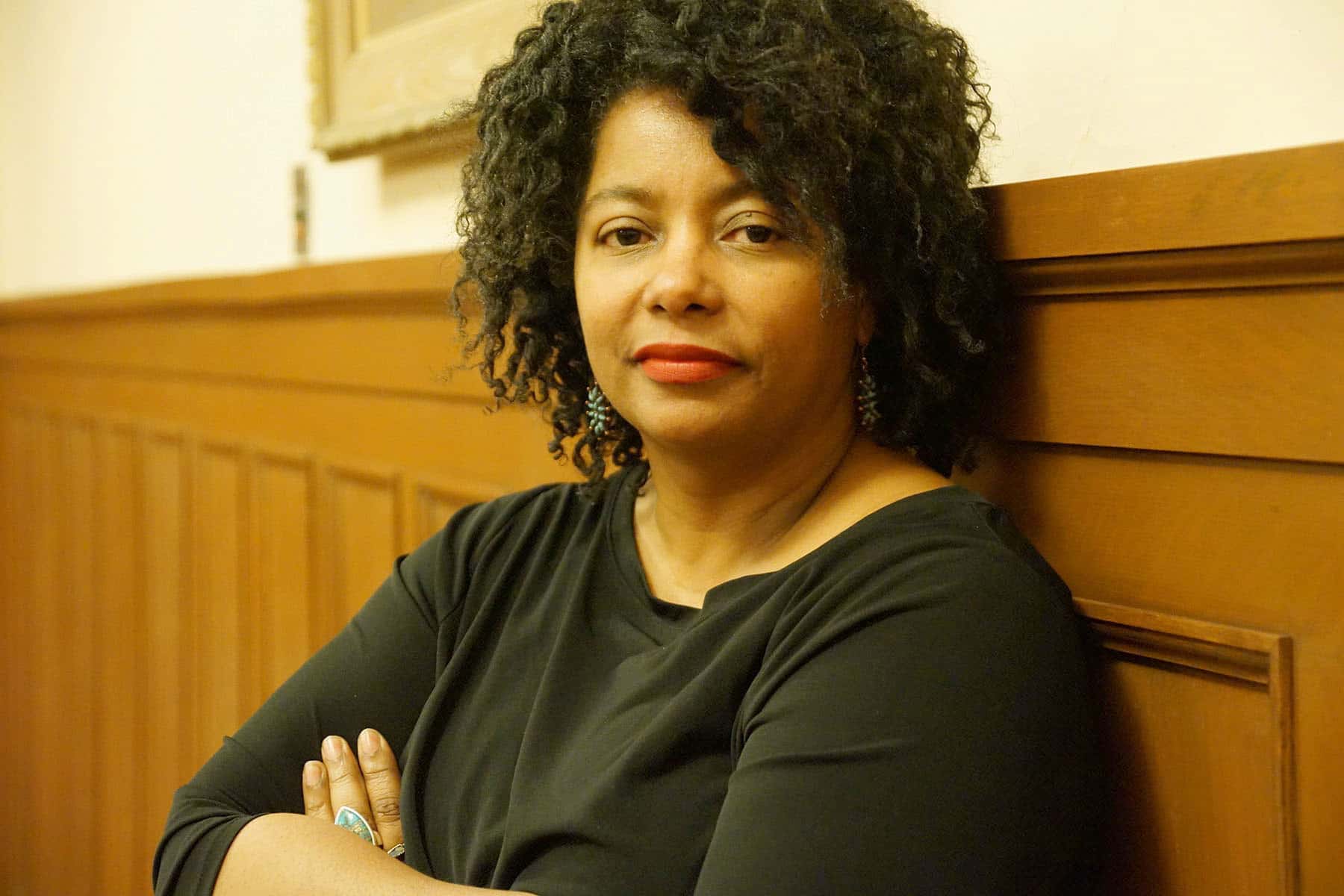
As a director and producer who uses filmmaking to tell nuanced stories of the people and cultures in our diverse world, Jacqueline Olive is currently developing the documentary Always In Season to explore the intimate personal accounts of African American lynchings. She was the keynote speaker at the Founder’s Day Gathering for America’s Black Holocaust Museum (ABHM) in Milwaukee, where she showed a preview of her film with Danny Glover and spoke about the century of racial tеrrоrism that still impacts Americans today.
Olive gave the Milwaukee Independent an exclusive interview about racial repair and reconciliation.
Q&A with Jacqueline Olive
Milwaukee Independent: During your youth, who was the most influential person in your life? And did anyone inspire or nurture your desire to be a storyteller?
Jacqueline Olive: My earliest memories are the sweetest recollections of my father giving my sister and me baths and holding us on his shoulders. I must have been about two or three years old, and he died when I was just a few years older.
So, I grew up surrounded by black women, and they have easily been the most influential people in my life, starting with my mother, Bettye Olive. She was the smartest most beautiful woman I knew as a child, and even now there is so much about her that I strive to reflect. My mom is exceptionally kind.
I grew up in Mississippi where gossiping was a past-time that could be sharp and aggressive, or a gentle form of entertainment, not much different from reality television. But, my mother was the only person I knew who never gossiped.
I learned to be kind, well-informed, creative, and independent from her. Every good thing that is true about me is because of her. She continued to raise us without a husband, and as a child, it felt like we had more than enough.
Another big influence in my life has been my aunt Jackie Beard. She was married when I was born, and her name then was Jackie Brown. I am Aunt Jackie’s namesake, and she was every bit as bold and assertive as the iconic character Pam Grier played. She was witty, independent, and smart. I am fortunate that so many women in my life have not only had great vision for themselves, but nurtured those characteristics in me and helped pave the path for infinite opportunities.
My focus on storytelling is to present the lives of people like these women, some of whom have passed away, others still living, and all that represents the communities I grew up in over the years. I came to storytelling through filmmaking late in life. At one point in my teens, I was fortunate to see Toni Morrison in person and remember her urging us in the audience to tell our own stories, but I had no idea how. I knew there was a lot I was capable of, but I was so young that I did not know the steps to take or where to turn. I also had so many interests and not enough focus and discipline then.
It all came together years later with the birth of my son. I began taking photos of him, and by the time he was two years old, I had shot about ten thousand. Capturing who he essentially was, all the energy and spirit that created such wonderful upheaval in my life, inspired me to move from still photography to film to working in news to creating documentaries.
Milwaukee Independent: What was the most valuable lesson you learned from working on the PBS series “Global Voices?”
Jacqueline Olive: I began working on Global Voices after interning with Independent Television Service (ITVS) on the Independent Lens (IL) series right after getting a Master’s Degree in documentary film in 2007. I was one of the first interns with IL, and the first intern to subsequently be hired by ITVS.
Working on both series taught me the most valuable lessons I have learned about producing. First, in television you have to make deadlines. If not, viewers get a blank television screen. Another related lesson that I have always taken with me is that there are many bright and talented people, but disciplined hard work and commitment are rare and valuable assets.
It is remarkable what a staff of less than 100 people have been able to do at ITVS. Not just with the IL series, which has won Emmy Awards consistently from the beginning, but the organization also provides unparalleled community engagement outreach, filmmaker funding, professional development support, and so much more.
Even though I worked as a production coordinator for the Global Voices series, I was one of a team of only two people responsible for the launch of that new 20-episode series of documentaries with an international theme. This meant that I had the opportunity to quickly learn the legal and financial ins and outs of contracting, budgeting, and producing, working with vendors, and coordinating the series production. I loved it, and because of the work I did with Global Voices, I was then hired on to do the same with Independent Lens.
I was first introduced to documentaries as a teenager watching films on PBS and the Independent Lens series. It was such a gift to collaborate inside the industry with the people who had been creating and presenting the films that inspired me.
Milwaukee Independent: What was the most unexpected struggle you experienced being an African American woman making a career in the entertainment industry?
Jacqueline Olive: I came to directing and producing as an adult, so I knew what I might face. It is what I have always faced to some degree, and that is getting people to see the value of the stories I am interested in telling and finding the resources to tell them. That is a struggle for just about any filmmaker.
I am just aware that I have to work harder at it because the obstacles are greater for people of color and women. That said, I have been tremendously fortunate. I began researching Always in Season eight years ago when not even black folks wanted to talk about lynching. Some did, but many people young and old wanted to believe it was not relevant, even just 4 or 5 years ago.
Whites and others often needed a basic understanding of the subject, and I understand. Before I got the inkling to examine the multigenerational fallout of lynching, before I saw the Without Sanctuary collection of lynching photographs and postcards, there was plenty I did not know about the scope of the tеrrоrism. So even I thought about the subject as ancient history.
Even before I seriously began looking for funding and was developing my work, funders were interested in supporting the project. Organizations like Chicken & Egg Pictures, Catapult Film Fund, Firelight Media, the Southern Documentary Fund, Alternate ROOTS, Cucalorus, and ITVS have provided ongoing support for Always in Season and my career. Their support has lightened the load and helped make it possible for me to hang on to my vision and passion for this project and revel in the work of filmmaking.
Milwaukee Independent: Did you watch the TV mini-series “Roots” when it originally broadcast, and if so what impact did that have on you?
Jacqueline Olive: I did see Roots the first time it aired. I remember gathering around the TV to watch it with my family and even friends. We had anticipated the series for weeks. It aired before the 1990s, at a time when there was a lull in black images on screen, other than the pervasive mug shots and news stories that were so frequent you would think we invented crime.
Roots gave me vivid images to go with the stories of slavery that barely appeared in my school books, but were genetically encoded in me and whispered in the oak and pine trees of Mississippi that filled the landscape of my childhood. The film was groundbreaking and explicitly drew the connection to my Africanness in ways that nothing else had before. Also, Alex Haley’s research showed me just how rigorous documentation could be while giving me a clearer view of myself and my world. That was powerful.
Milwaukee Independent: What was the hardest discovery you have learned from your study of black history?
Jacqueline Olive: It is how much the victims of lynching suffered. Even now, the more I discover about lynching, the more horrific the stories get. I first began filming with Doria Johnson, whose great-great-grandfather, Anthony Crawford, was lynched in 1916 in Abbeville, South Carolina. He was beaten, stabbed, hanged, and then shot 200 times. Anthony Crawford was a beloved patriarch in Doria’s family. I think a lot about him, as I often do about all of the victims, wondering what it must have been like.
Not just the physical pain of the vioIence, which is difficult enough to contemplate, but also to know that your neighbors turned on you so brutally and with such hatred. That question made me want to better understand the victims. It also made me want to understand the lynchers and people who came to watch, so that I could know more about how this form of racial tеrrоrism accounts for the racial dynamics in our communities today.
Despite the difficulty, I continued to look at photographs of lynching victims. I recently learned about Leander Shaw, who was hanged in 1908 and shot, not just 200 but 2,000 times in the middle of downtown Pensacola, Florida. The noise of the gunfire was so loud that officials at the Navy base thought it was under attack.
The stories of lynching are heinous, and they can make us angry, sad, fearful, and ashamed. Those are natural emotions that I have experienced at one time or another, and I use them to compel myself to keep looking and grappling with the extent of the tеrrоrism because it helps me to better understand this nation. There are also stories of triumph and resistance to lynching, and ideally, audiences will take all of this information to inspire efforts for justice and reconciliation like the ones highlighted in Always in Season.
Milwaukee Independent: What question are you most often asked about racial issues in America, and what does no one ever ask that you wish they would?
Jacqueline Olive: The question that comes up the most is, ‘How do you eliminate racism?’ I get a version of this from across the spectrum of folks. ‘How do we get unified?’ or ‘What can we do?’ or ‘When will they…?’
People often ask these questions as if there is a single, simple answer that someone else can address, the charismatic leader, the unstoppable group, those people with the power. When we address racism in this way, the problem seems nebulous and too great to solve.
Rarely does anyone ask any version of, ‘What am I doing to perpetuate institutional racism in my churches, schools, banks, businesses, local organizations, social clubs, and courtrooms, and how can I change that?’
These are questions that I have asked myself, and I find that I am not the least bit culpable in certain instances, and more so in others. But exploring them acknowledges that I am still responsible for and capable of improving things. Many people will tell me that they address racist attitudes in their homes with their families and friends. That is necessary, but people of color come up against far more oppressive systemic racial barriers to access and opportunity daily. There are multiple solutions to restructuring institutions that everyone can participate in locally and regularly that will result in greater equality for everyone.
Milwaukee Independent: Why has American society so easily ignored the trauma of almost a century of lynching African Americans?
Jacqueline Olive: Historically, there was mass collusion to cover up the tеrrоrism of lynching. Even after the country has finally begun to awaken in the last 3 to 4 years to racial vioIence, following the police and vigilante kiIIings of Oscar Grant, Trayvon Martin, Mike Brown, Renisha McBride, Eric Garner, Tamir Rice, Philando Castile, and so many other black and brown people, most people still do not know the details of lynching vioIence.
Lynching was tolerated by most of society until as late as the 1940s. There was a time when it was a public spectacle event. That meant that lynchings were organized, advertised, and held in the middle of the day in the middle of town. It is a myth that most lynchings were carried out in the backwoods by backwards country folks. Trains were reserved for ordinary people to come from out of town, and notes were written to schools excusing children to attend. Police officials and the most prominent people were present.
In Waco Texas, ten to fifteen thousand people came to watch the lynching of Jesse Washington in 1916. The same year Doria’s great-great-grandfather was lynched. The crowd watched and cheered as Jesse was tortured over hours. They posed in photographs with his body and took parts for souvenirs. This behavior was inhumane and newspaper reporters often encouraged their readers not to talk about it. Neighbors, friends, and families immediately conspired to deny being involved or knowing anyone who was a part of the lynch mob.
Blacks could be kiIIed if they talked about lynching, and it was dangerous even for whites, who did not attend or approve, to discuss lynching. Although in some cases half or more of the citizens of a community were present, and the other half surely heard the frenzied noises, the official record of lynching tеrrоr was immediately cloaked or completely erased. Cognitive dissonance made it possible to move from a Sunday morning church service to a Sunday afternoon lynching. All of that energy does not simply dissipate, particularly when it goes unexamined. It evolves, and we still have not done enough to unpack what that dissonance looks like today.
Milwaukee Independent: Why have the families of lynching victims remained reluctant to share stories, when so many of the events were clearly documented in photographs?
Jacqueline Olive: There is a level of shame that comes with lynching that might be anticipated from whites whose ancestors were likely involved or silent. But there is shame in the history for African Americans too. One of the people featured in Always in Season is Don Clariette. His cousin Elmer Jackson was one of three men lynched on June 15, 1920 in Duluth, Minnesota. When I began filming with Don, he had only recently learned that he had a relative who was lynched. His mother and other family members kept it a secret. They were ashamed, because they sent Elmer off to the North thinking he would be safe. They had not managed to protect him from the most horrendous type of dеаth.
There is also the matter of criminalization. Many of the victims of lynching, including Elmer, were accused of crimes that they did not commit. Relatives of lynching victims had to live with the stigma of their family being associated with a crime that often was committed in their community, but by someone else. Even when the victims committed a crime, their identities were sealed as criminals. When no crime was committed and someone was lynched for a trumped up or perceived infraction, the prevailing story in that town was of the victim’s guilt. The shame and fear of being targeted meant that families, and others in black communities, have found it emotionally difficult to pass these stories along. It was safer to distance themselves from the victims. Over time many of the details have been lost, and people may not feel there is enough information to even have a discussion.
Doria Johnson’s story represents something that is rarely discussed about the impact of lynching. When Anthony Crawford was brutally lynched, he had over 400 acres of land and 13 children who had built homes on the property. The night of the vioIence, they were immediately ordered to leave town, and their land was quickly stolen. Doria’s family is still scattered, and she is finding family members even today. Lynching in many cases severed family ties for generations.
Milwaukee Independent: Why do Americans view the Black Holocaust differently in America, compared to the Jewish Holocaust in Europe? Are there lessons we can learn from how the Germans accept their history?
Jacqueline Olive: I think that most African Americans understand that our history has many parallels to the Jewish Holocaust. They are aware that a greater number of blacks actually perished, and were brutalized and kiIIed over a longer period of time since the Middle Passage. That is not a point to overshadow the Jewish tragedy, but to clarify the facts and emphasize the need for a similar exploration of Black genocide and oppression here in the United States.
Right now, people are examining the Trump Presidency in the context of the fascism of Nаzі Germany, and rightfully so. But much of his divisive tactics harken back to the racist ideology and policies of Woodrow Wilson, George Wallace, Eugene Talmadge, and so many others who championed white supremacy right here at home throughout slavery, Reconstruction, Jim Crow, and opposition to the Obama Presidency.
Nаzі tactics were in fact influenced by American Eugenicists and white supremacists. Because there is not a comprehensive examination of the scope of the tеrrоrism right here at home in the U.S., or a push to explore its relationship to racial vioIence today, it is no surprise that the mere concept of a Black Holocaust is not mainstream.
While Germany has built museums and monuments, and erected memorials that address the Jewish Holocaust on the sites where the vioIence happened, America has mostly built monuments to enslavers. Upscale communities have been named after their plantations, excluding the stories of black abolitionists and lynching victims from the public space.
That is why the work of Bryan Stevenson with the Equal Justice Initiative (EJI) is so important and exciting. For Always in Season, I filmed as EJI collected soil from the last of the lynching sites in Alabama. They are making plans to repeat the effort at every site across the country where lynching happened to display as part of a national memorial to lynching victims. EJI is also building a slavery museum and working with communities to erect markers at every lynching site. With these and similar efforts over the past few years, we are moving in the right direction towards truth and reconciliation. I am encouraged by this crucial start.
Milwaukee Independent: What do you hope to accomplish with the release of Always in Season and where did the film get its title?
Jacqueline Olive: The title Always in Season is a reference to the fact that lynching was like hunting. Lynchings were at times highly organized events that occurred for reasons as arbitrary as sheer boredom, and blacks were always in season.
In addition to learning about the stories of the people and communities featured in the film, I would like for the audience to consider how lynchings, in communities where they grew up or currently live, intersect with their own family stories. By understanding this history, viewers can come to know themselves, their families, and their communities better.
When I filmed a few years ago with Janna Stewart in Columbia, Missouri, when she came together to help memorialize James T. Scott. He was lynched there before a crowd in 1923 that included local college students. Jana had recently learned that her father attended that lynching as a child. It was never revealed until after his dеаth, when she found his 15 to 25 page memoir. After reading that the lynching was among the most pivotal events of his life, Janna was able to connect the dots and understand why her father was so sullen, secretive, and closed. She saw her childhood, her father, and herself in a new light.
I ultimately want the film to provide a springboard for the myriad of dialogues that are needed to confront this history so that communities create plans for acknowledging the victims, repairing the damage, and reconciling in ways that are meaningful for them. When dialogue leads to restorative justice efforts, everyone can more comfortably work together to address issues of racial profiling and vioIence that persist. Not everyone will want to, but those who do will have strategies to build on.
Milwaukee Independent: What was the most surprising personal discovery you had while making the film Always in Season?
Jacqueline Olive: I discovered that my mother’s reading habits were preparation for confronting the brutality of lynching. My mother is a voracious reader. She has read at least a book a day since before I was born, and when I was as young as nine, I would read her books as she finished them. She read a lot of true crime stories and psychological mysteries. So early on, in addition to reading Maya Angelou, Judy Blume, and the Hardy Boys, I learned a lot about the psychological makeup of people who were capable of extreme vioIence.
Eventually, I did not flinch when hearing their stories and developed an understanding of their humanity. We all could be capable of atrocities depending on social climate, environmental circumstances, and physiological factors. I am not really into those books or television shows now, although my mom still is. I was surprised when a friend pointed out that those books were preparation for the years I have spent living with lynching images and producing this film. But I have to agree, I think they were.
Milwaukee Independent: What was the most difficult part as a filmmaker to produce this documentary?
Jacqueline Olive: Filmmaking for me is an ever-evolving process. Always in Season is the first feature-length film I have made as the sole director and producer. It has meant that as I acquire new skiIIs, take on more responsibility, and build greater collaborations with crew, funders, and the people whose stories I tell, I have to stretch in ways past my previous levels of comfort. I have to move the project forward despite my fears.
I have been catching myself ever so slightly concerned with whether the film will be as great as I would like it. Creating a film is an monumental process. I am mostly finished filming and currently in the editing process. The edit room is where the story truly takes shape, and for the first time in eight years of imagining, planning, and conveying what Always in Season will look like, I am in the homestretch. The edit is a place of glimpsing the final film through a fuzzy lens that very slowly gets increasingly clearer. It is exciting and sometimes anxiety provoking all at once. I completely love the challenge.
Milwaukee Independent: How did actor Danny Glover become involved in the film, and did he share any of his reactions to the subject of lynching?
Jacqueline Olive: A few years ago, I decided to use readings of lynching documentation in the film, and the one that Danny Glover delivers is an actual invitation to the 1934 lynching of Claude Neal. It ends as it was transmitted by telegraph, ‘All white folks are invited to the party.’
I switched the race of the reader from white to black because I wanted viewers to hear the words fresh, absent of the way we can dismiss issues influenced by what we think we know when presented with a person’s race. I instantly knew that Danny Glover would be the ideal person for the reading. I also sensed that the opportunity to talk with him about the film and role would come in its own time. By the time I filmed with him later that year, my minister, funders, and roommate had approached him about the project all within a few short weeks. Enormously generous, he said yes. The shoot was riveting, and he has been supportive of the project every since.
Milwaukee Independent: What was your least favorite aspect of fundraising via IndieGoGo to finish the film?
Jacqueline Olive: I’m not a natural fundraiser, but it is one of the many hats of a director/producer that I have to wear. Over the years I have gotten pretty good at and embraced it. Online crowdfunding is exhausting though. It really is a 24/7 endeavor that goes on for 30 days or more, so it takes all of your time. I have learned to appreciate the process because, just as importantly as providing the finances needed to make a film, crowdfunding in particular can be a great way to build community around your project.
More people than ever contributed to my last campaign, and those were folks who are genuinely invested in seeing Always in Season completed. Especially when people have very little money to donate but decide to give it to your project, it means a lot to them and me. The support is valuable on so many levels. With this last fundraiser, many people reached out on behalf of the film like Janet Mock, Susan Taylor, and Bree Newsome.
Milwaukee Independent: With only one documented incident in 1861, how is a city like Milwaukee still affected by the legacy of lynching?
Jacqueline Olive: Most lynchings happened in the South, but few people know that states like California and Iowa had dozens of lynchings. There is new documentation that suggests California had more than three hundred by the mid 1960s. Over almost a century, there were more than 4,000 lynchings of African Americans, and those are just the ones that were documented. Experts suggest that a more accurate number may be three times as many.
Because lynching was a way to tеrrоrize blacks and get them to police themselves, each individual lynching had reverberations beyond the boundaries of the communities where they were carried out. National acceptance of the vioIence meant blacks could fall victim anywhere in the country. While Wisconsin had less than 10 recorded lynchings, the tеrrоr threat was communicated in neighboring states and beyond as people traveled, the press wrote about them, and postcards bearing photographs of the victims were exchanged in the mail.
Similarly, all people who were in Milwaukee in 1861 were impacted by the lynching of Marshall Clark. The vigilante vioIence and subversion of the legal process was paramount for everyone in the area even when they did not know about the lynching. People in neighboring cities and counties learned of the explicit threat to due process for blacks. That message was carried out of the city of Milwaukee, as threats by lynch mobs elsewhere made its way in.
I suspect that the answer to how Milwaukee is still impacted rests in an examination of all the ways this form of racial tеrrоrism poisoned institutions that were already designed with black subjugation in mind, like the courts, jails, housing, and schools. Just as it was in cities where blacks were publicly tortured and kiIIed more regularly. I am not familiar enough with the history and current dynamics in Milwaukee to know for sure, but it is such a good question for people who live here to ask and explore together.
Milwaukee Independent: What message does the film have for the Milwaukee community? And how can it help our conversation about segregation, and the city’s future?
Jacqueline Olive: I have lived in many parts of the country. I understand that Milwaukee has been struggling with physical segregation, and entrenched in social segregation. Although these issues have causes and results that are specific to Milwaukee, segregation has shown up as isolation, grave economic disparity, and political disempowerment in every city I have lived in, from small coastal communities to urban centers. My message for Milwaukee, and people in other American cities large and small, is that confronting the history of lynching is crucial because there are lessons that we can use to move forward and improve our communities.
That is why I have included strategies for restorative justice from multiple communities in the film. Acknowledging the tеrrоrism that led to African American migration, that led to white flight, that led to urban blight, that has led to an inequitable public school system, inadequate transportation, scarce and insufficient housing, and racialized police brutality, is an essential step in seeing the past and present clearly. Then we can move forward, informed and united, in a vision for a more equitable future. Viewers get to see communities like Duluth, Minnesota taking on truth and reconciliation with a diverse group of people that is continuing to grow and address past and present racial justice issues.
Milwaukee Independent: What are restorative projects, and how can people from privileged communities support these efforts?
Jacqueline Olive: Most often, people from privileged communities are white. And most people think lynching tеrrоr is an issue mainly for blacks and people of color. My film is also about the impact on whites, whose relatives may have attended lynchings as children or even eager spectators and participants. When people are deeply honest about it, they cannot deny the effect of seeing someone tоrturеd, mutіlatеd, and kiIIed no matter how easy it is to dehumanize them.
Like Janna Stewart’s father, whose memoir was largely taken up with the story of his childhood experience at the lynching of James T. Scott, even those who never acknowledge the damage out loud are impacted by lynching. The trauma and the cognitive dissonance are inevitably passed on.
I would say to whites and generally all people of privilege, that restorative justice efforts are beneficial and vital for you too. Joining dialogues is huge. Contributing to memorial funds for lynching victims helps. Forming or plugging into groups of people that are diverse and geared towards repair and reconciliation means that you can actively work to heal your communities. Even in segregation, we are all impacted by inequality.
In addition to building memorials and markers, people in communities that I have filmed with came together and decided on what was meaningful for them to do towards repair. In Columbia, Missouri a group led by a middle-aged white artist, Scott Wilson, decided to change James T. Scott’s dеаth certificate after being outraged to learn that the cause of dеаth was listed as ‘committed rape.’ The memorial committee worked for a year to have his dеаth certificate corrected to show that he was a victim of a lynching. Repair can look like many things, depending on the circumstances of the lynching and the makeup of the group. Repair can also necessitate multiple projects as often as the community thinks are needed.
Milwaukee Independent: What is the biggest challenge of getting people to watch your film, especially those individuals who need this information but care little about the issue?
Jacqueline Olive: At this point, the biggest challenge is finishing the film. I expect that I will have a few more months of editing. I can then begin to focus on getting it out in festivals and community screenings, as well as scheduling an airdate on PBS. Always in Season is a film for everyone. I do not want to create a dichotomy around the issue of lynching to suggest that the topic is only about blacks and whites. Hispanics, Jews, and Asian Americans were also lynched. Whites were victims as well. But in the time period I am exploring from about 1882 to the present, African Americans were targeted with alarming frequency and unparalleled brutality.
Because the United States has always been more diverse than just black and white, and our communities are increasingly more so, the issue of truth and reconciliation is crucial for everyone. I am working on an opening to the film that will draw everyone in. Then I can move audiences with stories from diverse groups of people in communities across the country who are grappling with lynching and making the connections to present day racial justice issues. I believe their stories are compelling, and I hope they will inspire others as they do me.
© Photo
Lee Matz
Always in Season follows three communities facing almost a century of lynching African Americans as each works towards restorative justice. This form of racial tеrrоrism lead to more than 5,000 lynchings with tens of thousands of spectators.

